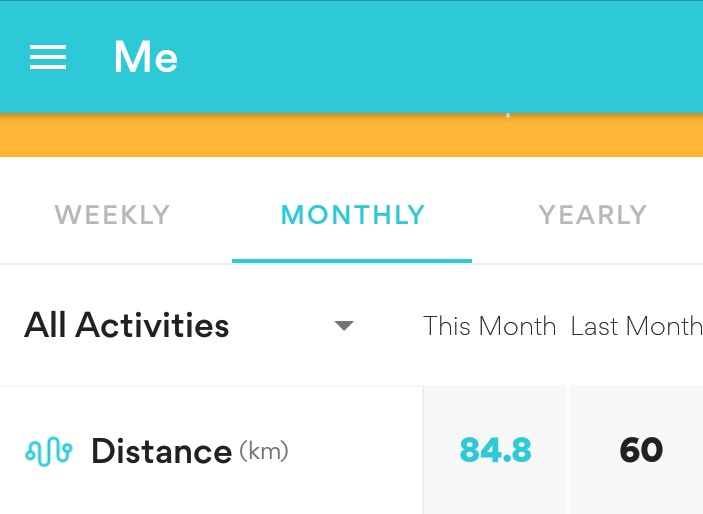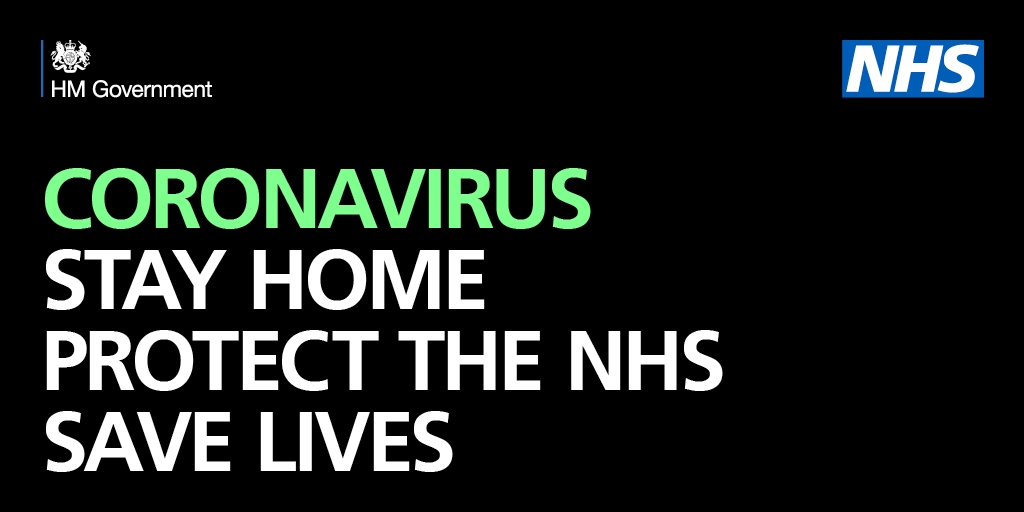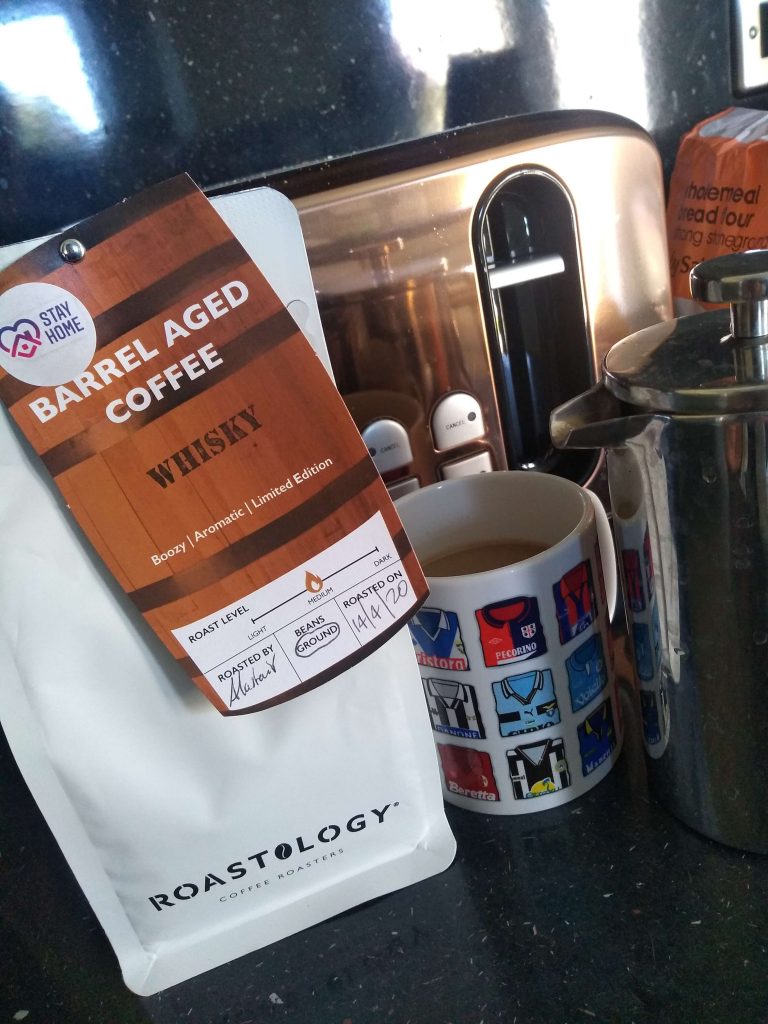
For myself and millions of others currently on furlough as part of the Coronavirus Job Retention Scheme, holding on to a sense of purpose when you have no work to do is tough.
Parents of school age children put their focus into home teaching; others are doing their bit in the community by volunteering; many of us are just getting by each day trying to maintain some form of normality.
We’ve still got it much better than a lot of others, though.
The self-employed who fell through the support gaps and those starting new jobs in March who weren’t eligible for furlough. Those who have lost their jobs outright. The doctors and nurses, care workers and hospital staff putting themselves at risk to care for others each day.
We’re the lucky ones. Our purpose now is to stay at home, for the collective good.
That gives us time to reflect, to reassess and to reset.
Here’s a few things I’ve learnt so far – and some things I hope we’ll all have learnt by the time we reach the other side.
Purpose is central to our wellbeing
Recreating my student days by getting paid to mull around the house for days on end sounded like the absolute dream at the start of the crisis, but soon lost its novelty.
My adult brain just isn’t content to indulge in mindless leisure any more. It needs to feel like it’s doing something constructive, making progress. A lot of that comes from day-to-day work.
With life essentially on hold while on furlough, it’s hard to fill that purpose vacuum.
LinkedIn is full of try-hard inspirational types urging us to use this time productively, or demeaning those who don’t. That’s not helpful at all.
We’re all dealing with this differently. Some days I feel like doing nothing at all and wallowing, others I feel inspired to do something constructive – like writing this blog post.
Progress comes in the form of painting the shed, cleaning the car or improving on my 5k time.

The shed gets a makeover
In order to do my bit for people in a similar situation I created a basic information site for furloughed workers.
I also signed up to the NHS volunteer scheme in the hope that I’d be able to fill my time by helping others, but teething problems have meant that it’s proving hard to find those in need.
While it’s nice to have more time just to enjoy being at home, lockdown has made me realise that the direction work gives us every day is hugely important in keeping a sense of purpose.
Slowing down is good for you
Being forced to do less has had its benefits, though.
I’ve had a passing interest in mindfulness over the past couple of years but never fully applied it to my everyday. Being furloughed has given me the chance to practice a bit more.
Not being able to go anywhere in particular has made me cherish the smaller things which bring joy.

Reading in the sun; enjoying the little things
We’re lucky to have a garden and live near some fantastic countryside, something you come to appreciate a lot more in times like these. The unusually good April weather has helped as well.
Bird song, greenery, warm rays on your skin. Just being outside is a pleasure.
I’ve managed to up my running to every other day rather than 2 or 3 times a week and have definitely felt the benefit of it.

Clocking up the KMs in lockdown
Fewer things to plan for generally means less stress. Lockdown leaves us with no other option than to take each day as it comes, to just exist for a bit rather than constantly strive to do something. That’s quite nice.
‘Get on with it’ culture can’t continue
The first five years of my proper adult working life were spent at startups in Berlin, where office dynamics are very different to the UK.
The coronavirus pandemic has highlighted just how self-defeating some attitudes to workplace absenteeism are in the UK.
On my HR introduction at my first job in Berlin there was a full 30 minute lecture on how we are at our most contagious before full blown symptoms of a cold or flu virus develop.
We were given the early warning signs to look out for – muscle aches, raised temperature, generally not feeling yourself. If we felt any of those we were to take a few days off work to recover and ensure we didn’t infect our colleagues.
Ensuring the illness isn’t spread around the office, and making sure you return to work fully able to do your job, is more important than spluttering your way through the day at half capacity and infecting half your team in the process.

Getting the message in the UK
Workers in Germany – often upheld as a model of productivity in industry and business – take over 4 times as many sick days as those in the UK, with about 18 days of sick leave per worker compared to just 4 in the UK.
I got that figure from this blog by a UK-based workplace management tool. Just look at this analysis of that:
“On average, UK workers took just 4.4 days leave for sickness last year – that’s the fourth lowest in Europe – showcasing how committed staff are to their work and their employers”
That sums it up for me.
Getting on with it is seen as a courageous, admirable thing to do. How many times do we see a news report about someone retiring after years of service having ‘never taken a sick day in their life?’
Are we committed to our work or just scared of losing money?
In Germany the law states that you must be paid 100% of your salary for the first six weeks of illness.
Studies in Germany (and similar ones conducted in Scandinavia, with similar HR practices) suggests that in fact the number of overall sick days across the workforce is massively reduced by allowing one sick employee to fully recover at home. They come back stronger and they don’t infect their colleagues.
In the UK, it depends on the employer. Some give full pay when a worker is sick. Some will pay absolutely nothing. Some will give you full pay for a certain amount of time before you must take Statutory Sick Pay, a measly amount that’s barely enough to live on for most people.
For the majority of workers who are ill in the UK, the need to feed their family far outweighs the collective need for them to stay at home – quite understandly so.
There’s also a prevailing attitude in the UK that sickness equals weakness. It’s just a cold. Get on with it.
That results in people coming into the workplace when they’re not well. They infect others, and those people then continue to come in and spread it further. A sick person does not work to the same level of productivity anyway, so their presence in the office is hugely counter-productive.
With this sort of approach to illness at work, it’s no wonder the UK struggled to contain the outbreak in the same way Germany did.
Keeping sick people away from healthy people seems like common sense now, but it’s taken a global pandemic for many of us to realise it.
And with people now being asked to isolate for up to two weeks when showing symptoms, there will have to be a shift in attitudes towards sick pay and absenteeism if offices in the UK are going to adapt successfully to the challenges coronavirus brings.
Pass the remote (working)
I do a job which could be done pretty well with just a laptop and a decent internet connection, from anywhere in the world. Most roles in digital marketing and web development are the same.
In the days leading up to full lockdown, one phrase in particular from the UK government advice was used repeatedly.
“WORK FROM HOME IF YOU CAN”
I got a solid week of home working in before going on furlough, and noticed very little difference in my workflow. Most internal communication with my team is already done over email and Slack, while clients tend to call me on my mobile to discuss things.
My commute isn’t far at all – a 20 minute drive in rush hour, 30 minute bus ride or a 35 minute cycle/run. It was surprising, though, just how much more focused and de-stressed I felt by cutting that part of my day out. It meant I was able to tend to things at home without the need to rush, making everything feel just generally a little bit easier.
Working from home isn’t everyone’s cup of tea. I’m not sure myself whether it’s something I’d like to do full-time; the temptation to raid the cupboards is real, and taking in packages for neighbours is a grind. Time seems to pass a little differently and it’s hard to build the same structure of a normal working day.
I do also miss seeing my colleagues. There’s definitely something about the office environment which can’t be replicated on Zoom or Slack.
Human contact is vital, but for some of us we only need it in certain doses.
Personally I find the office environment a little too much at times, with noise and movement a constant distraction from the task at hand. Creating my own space at home which allowed me to work optimally was relatively easy, and certainly helped me to focus.

Home office scenes before being furloughed
Having the option to do that occasionally while still working at the office most of the time seems like a great balance.
There are some more selfish benefits to working at home, of course. I get to drink my own filter coffee rather than the office instant, and taking a break to gaze around the room means I recall my favourite football memories or stare out at the green fields behind the house.

One perk of home working
Being forced to work from home might open more companies up to the benefits of allowing it on a more regular basis for those who wish to do so in the post-Corona future.
Working 9 to 5, not a way to make a living
Cynics like to pigeonhole startup culture as a gimmick. Work shy millennials playing table tennis and getting pissed on other peoples’ money.
That’s partly true. People have fun, and they have a drink together on a Friday.
But my experience of startup culture is of an environment which gives people the freedom to work in a way which suits them and brings out their full potential. It’s one which recognises that happier employees do better work.
Gimmicks don’t make people happier, not in the long term. A commitment to wellbeing and employee happiness does.
Central to that is the choice of flexible working hours.
I’m not a fan of the traditional 9 to 5.
At your desk at 8.59, straight out the door as soon as the second hand ticks over to 5. I don’t find it particularly motivating, and it doesn’t help me to be productive.
When working in Berlin, my core start time was between 9 and 10, and I was free to leave when I felt that all of my tasks for the day were complete. It made me far more productive. There was no clock watching, no sitting around twiddling my thumbs waiting for the bell to ring.
I was able to plan and complete my work in a way that rigid working hours don’t allow. I was treated like an adult with greater autonomy and responded accordingly with the quality and output of my work.
As social distancing measures look set to continue for a long time, offices who still operate a strict 9-to-5 will have to adapt. Staggered start times for different sets of employees is one solution that’s been suggested to ensure that offices aren’t at full capacity and able to keep employees apart.
Hopefully we’ll all learn to be a bit more flexible.
SEO’s not dead
Shutting down the majority of the physical economy would have been a whole lot scarier 20 years ago. Daytime internet usage across the UK has doubled during the lockdown – a huge opportunity for eCommerce and digital marketing.
SEO in particular is one discipline which is set to take on extra significance as we move through the crisis.
First of all there’s the ethical role that SEO takes on in times like these, ensuring that trustworthy information is easily found in as few steps as possible. Google has made dramatic changes to the SERPs for coronavirus searches, with official government and NHS advice featuring heavily.
Then there’s the business side of things.
Brands and retailers who neglected SEO pre-Coronavirus will surely be regretting that now.
Those that invested in quality editorial content, built useful information hubs and produced navigational pages are still seeing a steady flow of users despite the inevitable drop off in conversions. That keeps them firmly in the thoughts of consumers who will be keen to spend again when things are more stable.
They’ll be in the strongest position once normality resumes.
An enlightening read. Looking forward to the next episode of your blog